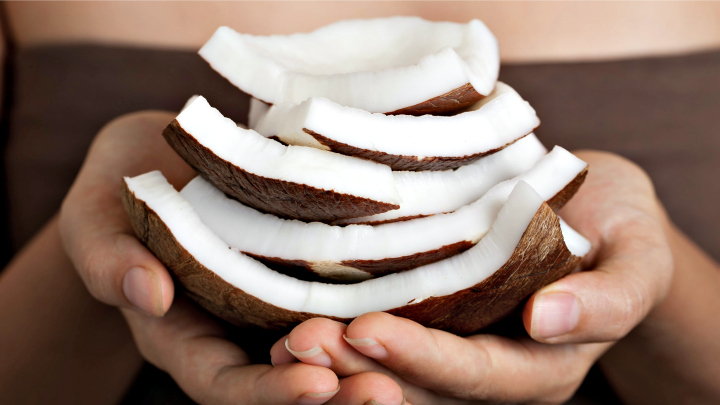We have all read about the numerous health benefits of coconut and how it can help you in the treatment of various diseases, right?
Although coconut is one of the healthiest foods, do you know if it is good for diabetes management? Should diabetics consume coconut products or avoid them?
Coconut Nutritional Benefits
Coconut is rich in naturally occurring saturated fat from short-chain fatty acids and medium chain fatty acids like lauric acid.
This acid is converted into the beneficial compound monolaurin which can effectively fight various organisms that can cause diseases. It fights viral infections like the flu and common colds.
Coconut contains other beneficial nutrients, include:
- Thiamin (vitamin B1)
- Vitamin C
- Potassium
- Folate
- Copper
- Manganese
- Iron
- Selenium
- Phosphorous
- Coconut Milk
Coconut milk has a similar nutritional profile to coconut meat. It is rich in protein, vitamin B, C, and E, fiber and minerals like calcium, magnesium, iron, phosphorus, copper, selenium, and zinc.
What is more, coconut milk has a high content of plant sterols and saturated fats with omega-6s.
There are 2 forms of coconut milk:
A thicker form that is known as coconut cream. It is found in desserts or rich sauces. Compared to the fluid form, it contains more calories.
There are some types of thicker coconut milk which are heavily processed and include emulsifiers. This could be harmful to the gut and increase your risk of metabolic syndrome and obesity.
A more fluid form which has high amounts of added water and can be used as a milk substitute.
Coconut Flour
Coconut flour is rich in dietary fiber which can lower cholesterol levels and reduce the risk of heart disease. This coconut product is low in carbs, so it has a mild effect on blood sugar levels and it is beneficial for people with diabetes.
It is gluten-free, meaning that it is beneficial for people suffering from celiac disease. People with type-1 diabetes are more likely to develop celiac disease, so that is why coconut flour is helpful for diabetes.
This product is rich in protein, so it will keep you full for longer. This protein is useful for cell growth and repair. Coconut flour contains fiber that can reduce the glycemic index and load of foods baked with this flour
Coconut Oil
It is well-known that coconut oil is very beneficial for the skin. However, coconut oil provides other health benefits as well.
According to a study, coconut oil can reduce insulin resistance and waist circumference and increase the levels of good cholesterol.
A further research needs to be done to prove the benefits of coconut oil regarding obesity, insulin resistance, and heart disease.
This oil is packed with medium chain fatty acids which are related to weight loss. A study claims that people who consume coconut oil for 4 months managed to lose seven pounds.
What is more, coconut oil can reduce abdominal fat which is associated with heart disease. This oil can slow the progression of Alzheimer’s as well.
Coconut Water
It helps in cases of hangover, nausea, and vomiting. Due to the high levels of water and absence of coconut flesh, coconut water is low in calories and fat.
A study claims that this coconut product is not recommended for people with diabetes. Coconut water is high in potassium which can lead to high potassium levels in the blood (hyperkalemia).
However, this is based on a single patient who consumed a liter of coconut water on a daily basis.
Source: Diabetes Health Page
